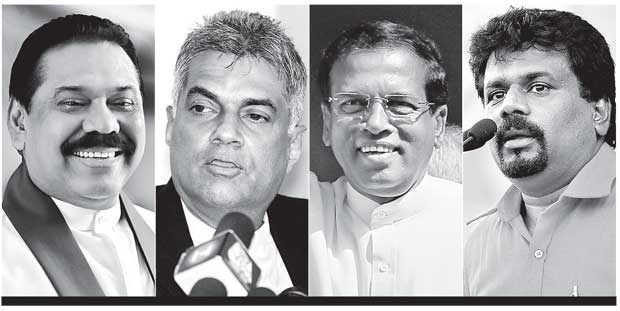Reply To:
Name - Reply Comment
Last Updated : 2024-04-20 00:00:00

.jpg) parts of the world.
parts of the world.voldy Monday, 17 August 2015 11:20 AM
Well said! Let us see how the rural voters have developed since Jan 09th.
Ryan Hudson Tuesday, 18 August 2015 06:32 AM
Results prove that MR is real asset to entire universe

Add comment
Comments will be edited (grammar, spelling and slang) and authorized at the discretion of Daily Mirror online. The website also has the right not to publish selected comments.
Reply To:
Name - Reply Comment
On March 26, a couple arriving from Thailand was arrested with 88 live animal
According to villagers from Naula-Moragolla out of 105 families 80 can afford
Is the situation in Sri Lanka so grim that locals harbour hope that they coul
A recent post on social media revealed that three purple-faced langurs near t